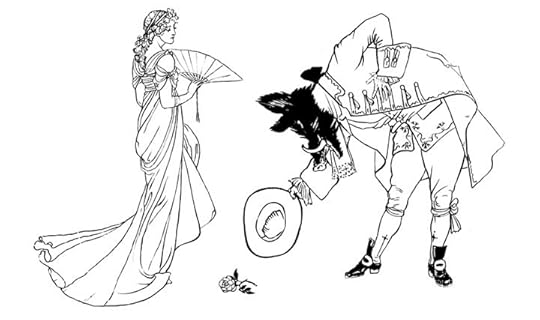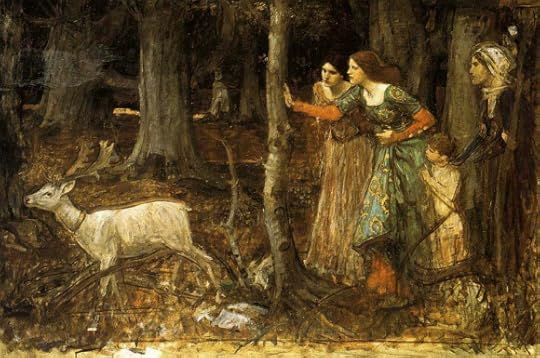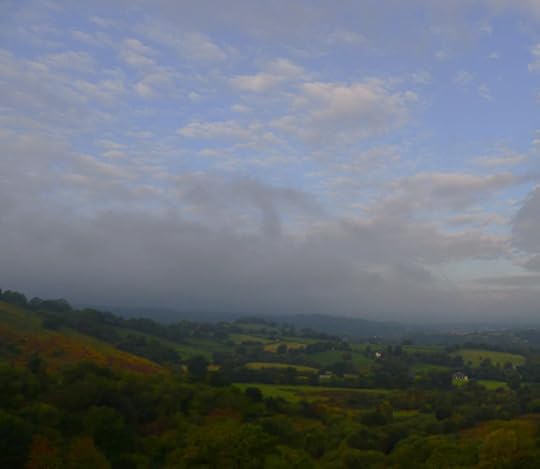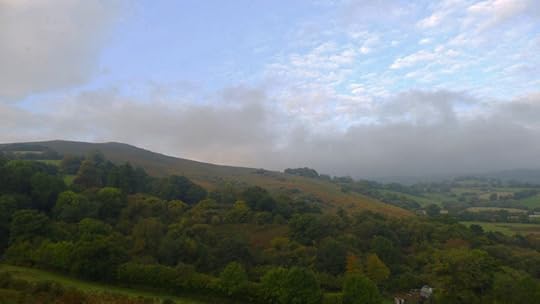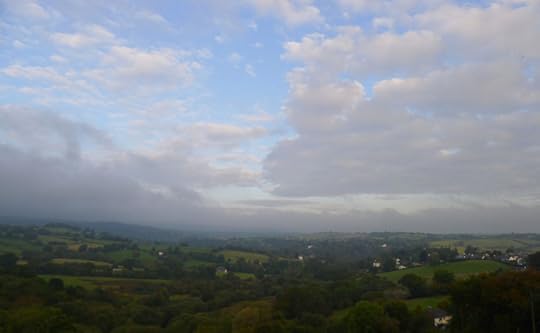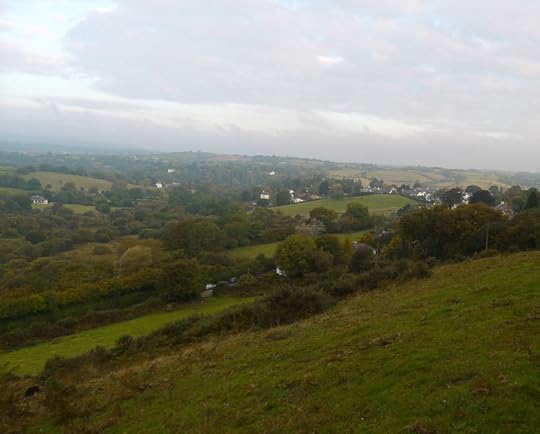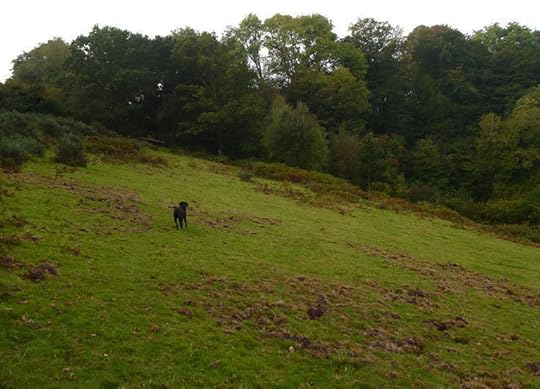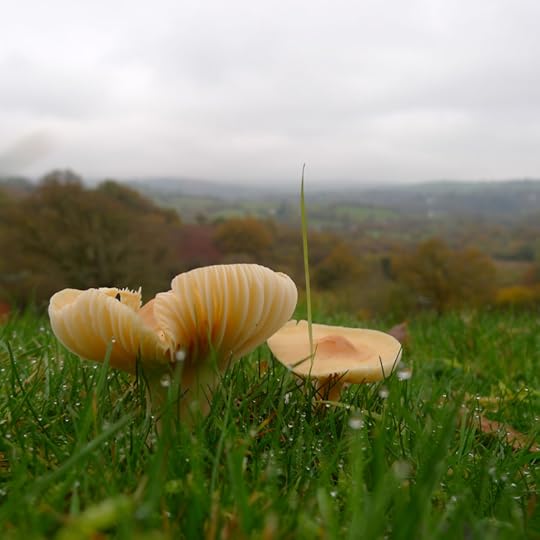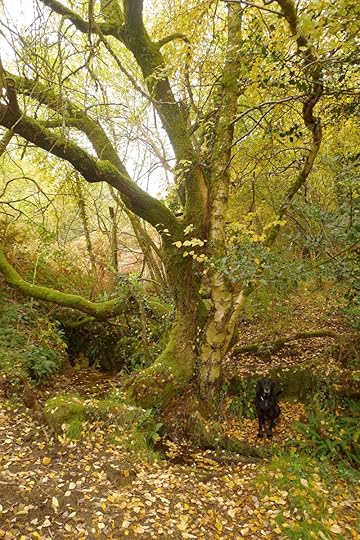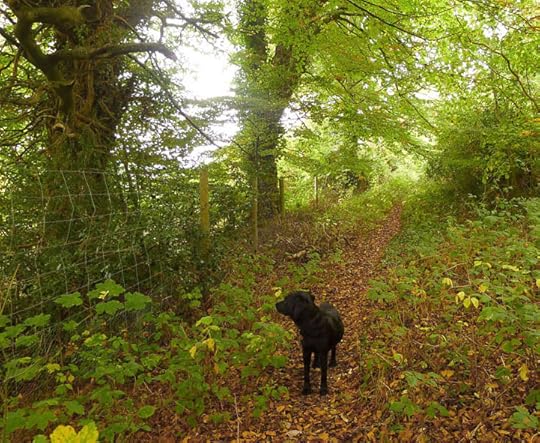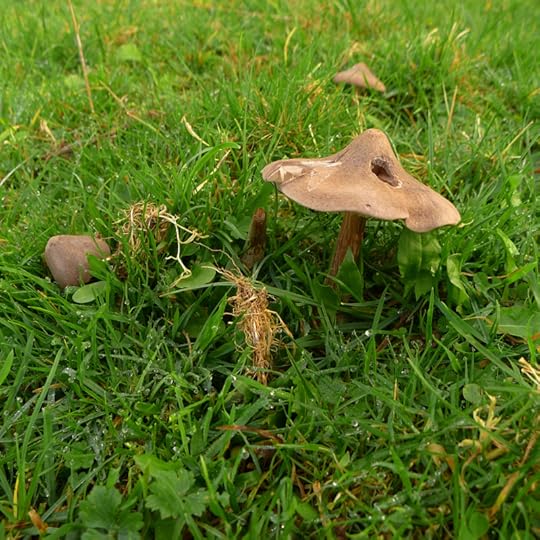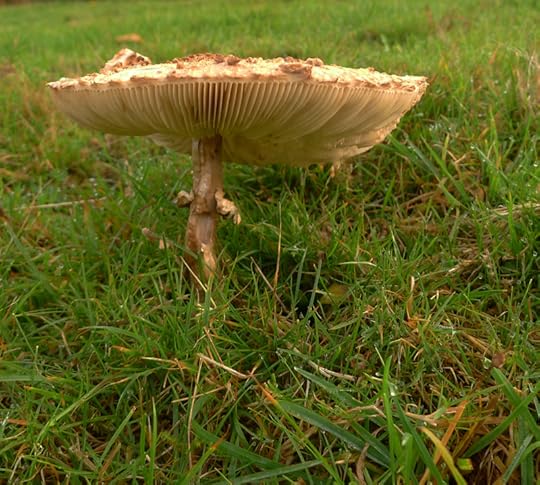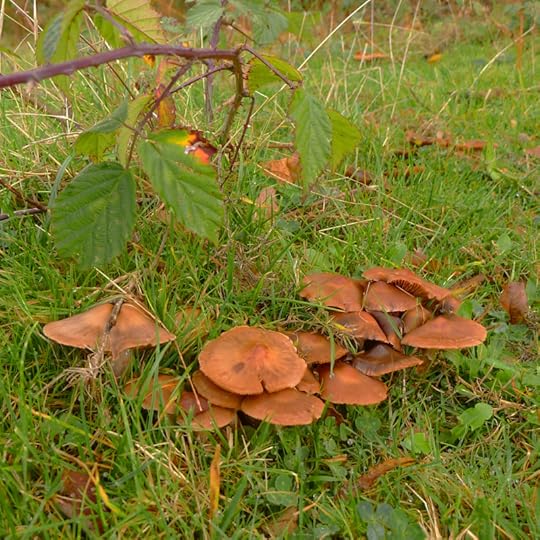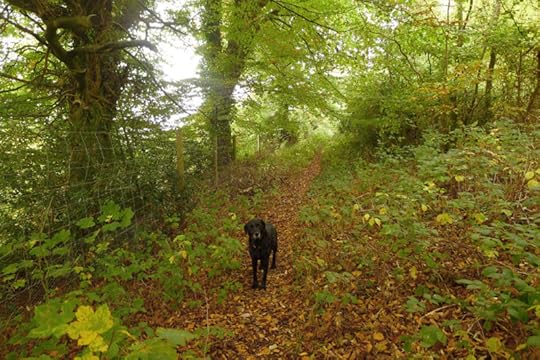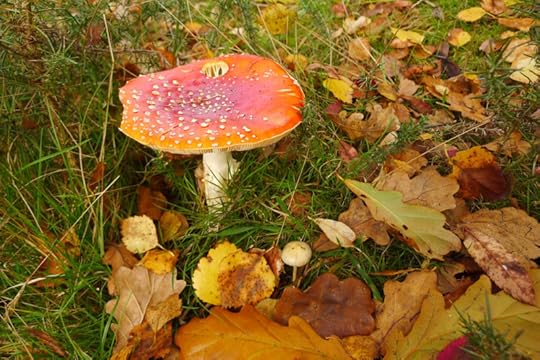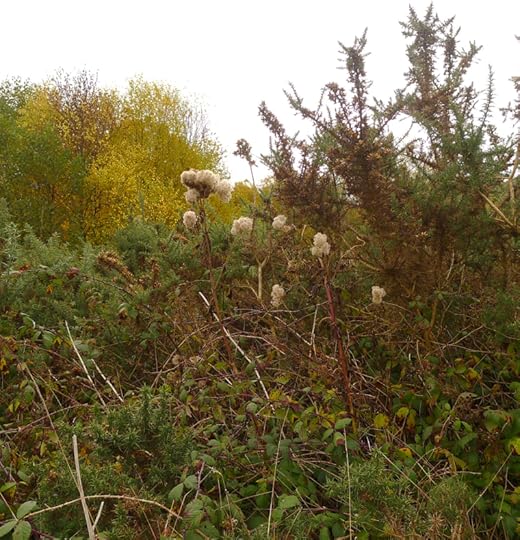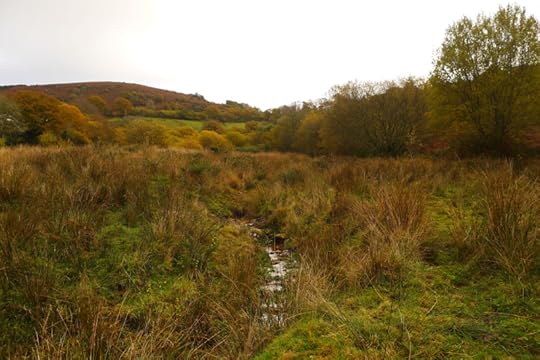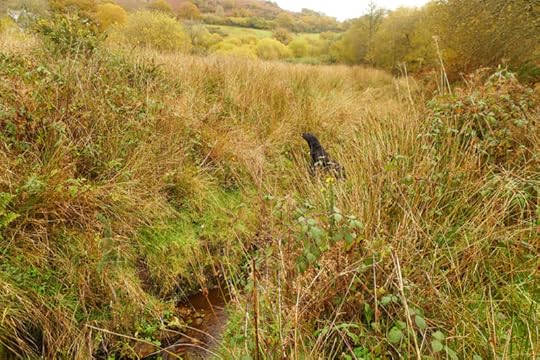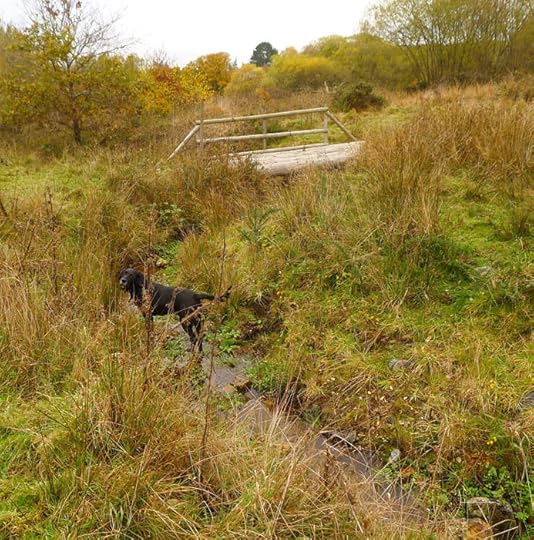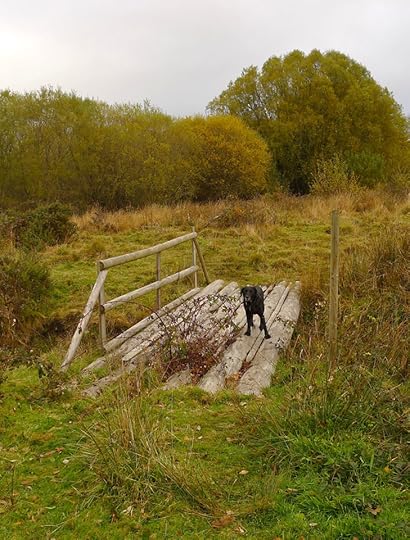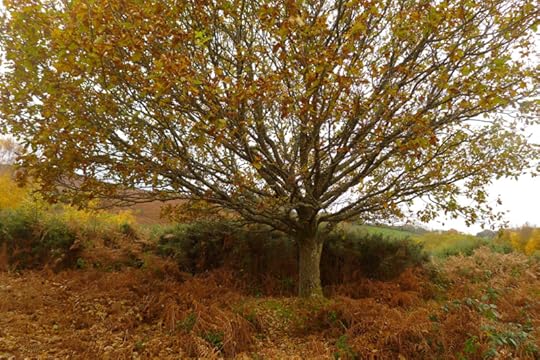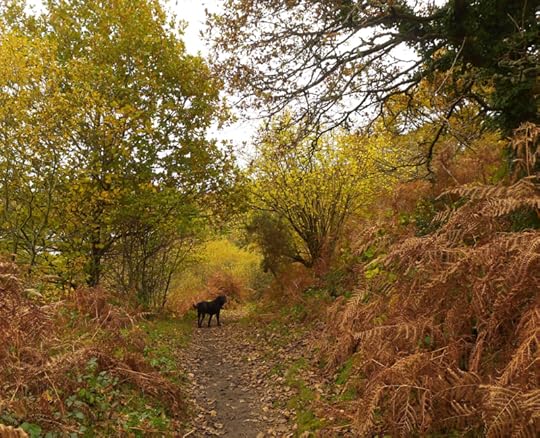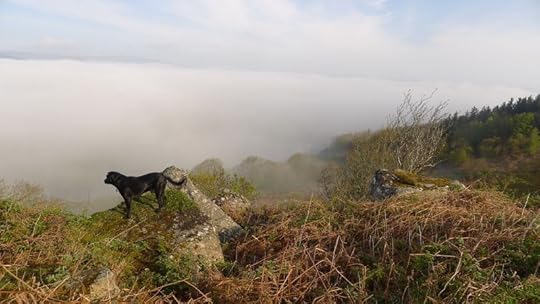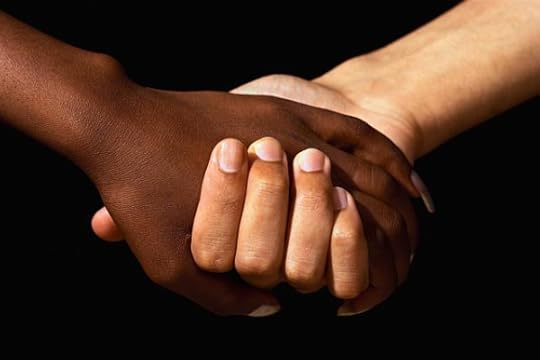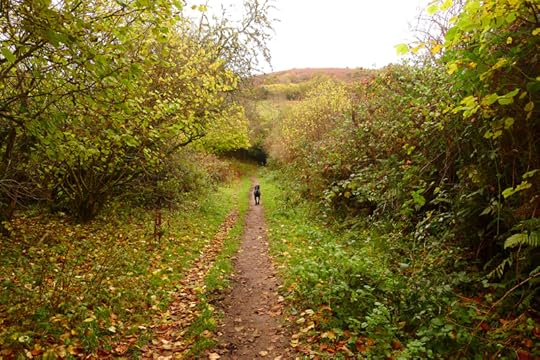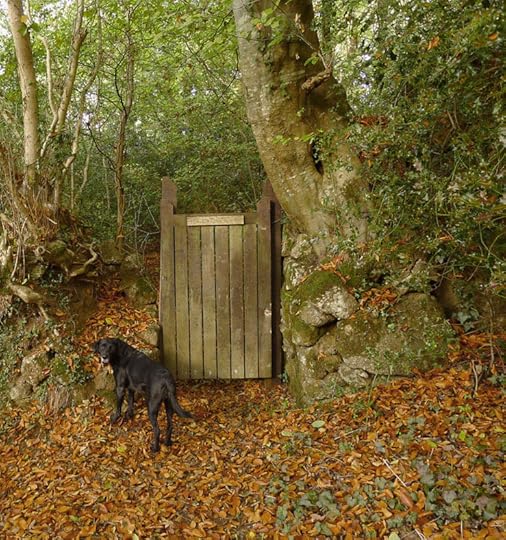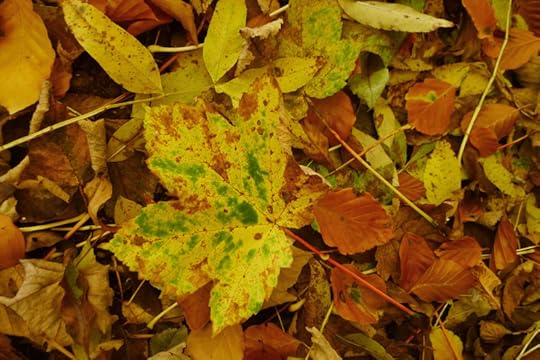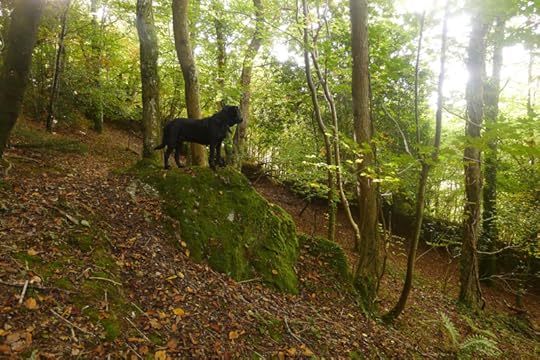Terri Windling's Blog, page 101
December 4, 2016
Tunes for a Monday Morning
Today, new renditions of old, old ballads about love, right and wrong. (Mostly wrong.)
Above: "Raggle Taggle Gypsy" (Child Ballad #200) performed by folk singer & music scholar Fay Hield, based in Sheffield. This classic song about a runaway wife appears on Hield's new album, Old Adam, which I highly recommend. The video art is by Nick Hayes, animated by Kristina Pulejkova.
Below: "Katie Cruel" performed by The Rue, a folk duo from Seattle, Washington. The best known version of the song was collected in New England in the 18th century, but its origins are believed to be Scottish, and a good deal older.
.
Above: "Courting is a Pleasure" (a.k.a. "Handsome Molly"), an Irish ballad also found in the American Appalachian songbook. It's performed by Jarlath Henderson, an award-winning musician (and practicing doctor) from Northern Ireland. The song appears on his addictive new album, Hearts Broken, Heads Turned.
Below: "False Lady" (a.k.a. "Young Hunting," Child Ballad #68), performed by Teyr, a terrific folk trio based in London. The video was filmed at the launch of their fine new album, Far From the Tree.
Drawings by Walter Crane.
December 2, 2016
Trailing the gods home
"By going deeper into myth, I go deeper into love, and when I go deeper into love, innately I find morality; I locate a True North in my own heart." - Martin Shaw, (whose West Country School of Myth is here in Devon, across the moor).
The little film is by Andreas Kornevall.
Painting: The Mystic Wood by John William Waterhouse (1849-1917)
December 1, 2016
A neighborly, kind, and conserving economy
From "It all Turns on Affection," a lecture delivered by Wendell Berry in 2012:
"The term 'imagination' in what I take to be its truest sense refers to a mental faculty that some people have used and thought about with the utmost seriousness. The sense of the verb 'to imagine' contains the full richness of the verb 'to see.' To imagine is to see most clearly, familiarly, and understandingly with the eyes, but also to see inwardly, with 'the mind���s eye.' It is to see, not passively, but with a force of vision and even with visionary force. To take it seriously we must give up at once any notion that imagination is disconnected from reality or truth or knowledge. It has nothing to do either with clever imitation of appearances or with 'dreaming up.' It does not depend upon one���s attitude or point of view, but grasps securely the qualities of things seen or envisioned.
"I will say, from my own belief and experience, that imagination thrives on contact, on tangible connection. For humans to have a responsible relationship to the world, they must imagine their places in it. To have a place, to live and belong in a place, to live from a place without destroying it, we must imagine it. By imagination we see it illuminated by its own unique character and by our love for it. By imagination we recognize with sympathy the fellow members, human and nonhuman, with whom we share our place. By that local experience we see the need to grant a sort of preemptive sympathy to all the fellow members, the neighbors, with whom we share the world. As imagination enables sympathy, sympathy enables affection. And it is in affection that we find the possibility of a neighborly, kind, and conserving economy.
"Obviously there is some risk in making affection the pivot of an argument about economy. The charge will be made that affection is an emotion, merely 'subjective,' and therefore that all affections are more or less equal: people may have affection for their children and their automobiles, their neighbors and their weapons. But the risk, I think, is only that affection is personal. If it is not personal, it is nothing; we don���t, at least, have to worry about governmental or corporate affection. And one of the endeavors of human cultures, from the beginning, has been to qualify and direct the influence of emotion. The word 'affection' and the terms of value that cluster around it -- love, care, sympathy, mercy, forbearance, respect, reverence -- have histories and meanings that raise the issue of worth. We should, as our culture has warned us over and over again, give our affection to things that are true, just, and beautiful. When we give affection to things that are destructive, we are wrong. A large machine in a large, toxic, eroded cornfield is not, properly speaking, an object or a sign of affection."
"No doubt," Berry adds, "there always will be some people willing to do anything at all that is economically or technologically possible, who look upon the world and its creatures without affection, and therefore as exploitable without limit.
"Against that limitlessness, in which we foresee assuredly our ruin, we have only our ancient effort to define ourselves as human and humane. But this ages-long, imperfect, unendable attempt, with its magnificent record, we have virtually disowned by assigning it to the ever more subordinate set of school subjects we call 'arts and humanities' or, for short, 'culture.' Culture, so isolated, is seen either as a dead-end academic profession or as a mainly useless acquisition to be displayed and appreciated 'for its own sake.' This definition of culture as 'high culture' actually debases it, as it debases also the presumably low culture that is excluded: the arts, for example, of land use, life support, healing, housekeeping, homemaking.
"I don���t like to deal in categorical approvals, and certainly not of the arts. Even so, I do not concede that the 'fine arts,��� in general, are useless or unnecessary or even impractical. I can testify that some works of art, by the usual classification fine, have instructed, sustained, and comforted me for many years in my opposition to industrial pillage.
"But I would insist that the economic arts are just as honorably and authentically refinable as the fine arts. And so I am nominating economy for an equal standing among the arts and humanities. I mean, not economics, but economy, the making of the human household upon the earth: the arts of adapting kindly the many human households to the earth���s many ecosystems and human neighborhoods. This is the economy that the most public and influential economists never talk about, the economy that is the primary vocation and responsibility of every one of us."
(To read Berry's excellent essay in full, go here.)
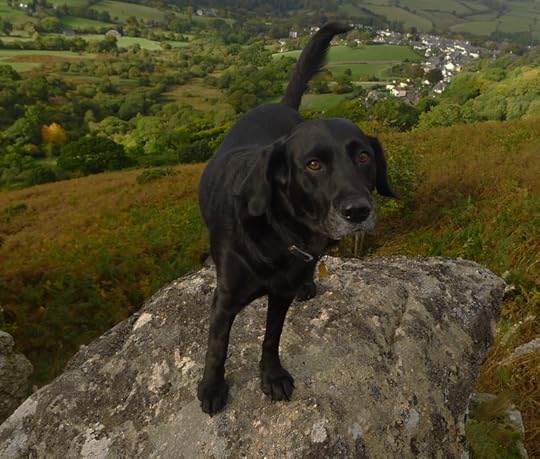 The passage above is from"It All Turns on Affection" by Wendell Berry (2012 Jefferson Lecture, The National Endowment for the Humanities). The poem in the picture captions is from The Way It Is: New & Selected Poems by William Stafford (Graywolf Press, 1998). All rights reserved by the authors.
The passage above is from"It All Turns on Affection" by Wendell Berry (2012 Jefferson Lecture, The National Endowment for the Humanities). The poem in the picture captions is from The Way It Is: New & Selected Poems by William Stafford (Graywolf Press, 1998). All rights reserved by the authors.
On the difference between hope and faith...and the need for both
From Rebecca Solnit's fine book Hope in the Dark: Untold Histories, Wild Possibilities (Haymarket, 2004):
"A friend of mine, Jaime Cortez, tells me I should consider the difference between hope and faith. Hope, he says, can be based on the evidence, on the track record of what might be...but faith endures even when there's no way to imagine winning in the foreseeable future. Faith is more mystical. Jaime sees the American Left as pretty devoid of faith, and connects faith to what it takes to change things in the long term, beyond what you might live to see or benefit from. I argue that what was once the Left is now so full of anomalies -- of indigenous intellectuals and Catholic pacifists and the like -- that maybe we do have faith -- some of us.
"Activism isn't reliable. It isn't fast. It isn't direct either, most of the time, even though the term direct action is used for that confrontation in the streets, those encounters involving law breaking and civil disobedience. It may be because activists move like armies through the streets that people imagine effects as direct as armies. An army assaults the physical world and takes physical possession of it; activists reclaim the streets and occasionally seize a Bastille or swarm a Berlin Wall, but the terrain of their action is usually immaterial, the realm of the symbolic, political discourse, collective imagination. They enter the conversation forcefully, but it remains a conversation. Every act is an act of faith, because you don't know what will happen. You just hope and employ whatever wisdom and experience seems most likely to get you there.
"I believe all this," Solnit continues, "because I've lived it, and I've lived it because I am a writer. For twenty years I have sat alone at a desk tinkering with sentences and then sending them out, and for most of my literary life, the difference between throwing something in the trash and publishing it was imperceptible, but in the past several years the work has started coming back to me, or the readers have. Musicians and dancers face their audience and visual artists can spy on them, but reading is mostly as private as writing. Writing is lonely. It's an intimate talk with the dead, with the unborn, with the absent, with strangers, with readers who may never come to be and who, even if they do read you, will do so weeks, years, decades later. An essay, a book, is one statement in a long conversation you could call culture or history; you are answering something or questioning something that may have fallen silent long ago, and the response to your words may come long after you're gone and never reach your ears -- if anyone hears you in the first place....
"You write your books. You scatter your seeds. Rats might eat them, or they might rot. In California, some seeds lie dormant for decades because they only germinate after fire, and sometimes the burned landscape blooms most lavishly. In her book Faith, Sharon Salzberg recounts how she put together a collection of teachings by the Buddhist monk U Pandita and consigned the project to the 'minor good-deed category.' Long afterward, she found out that while Aung San Suu Kyi, the Burmese democracy movement's leader, was isolated under house arrest by that country's dictators, the book and its instructions in meditation 'became her main source of spiritual support during those intensely difficult years.' Thought becomes action becomes the order of things, but no straight road takes you there.
"Nobody can know the full consequences of their actions, and history is full of small acts that changed the world in surprising ways."
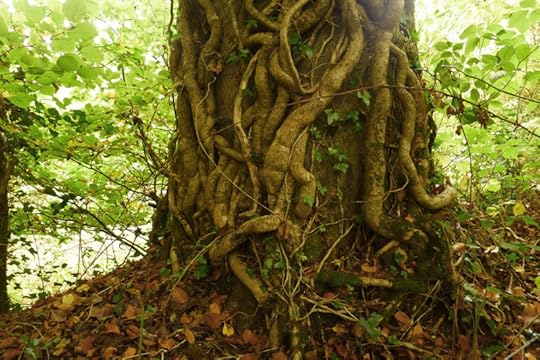 The passage above is from Hope in the Dark by Rebecca Solnit (Haymarket, 2004). The book is available here at 50% off until January, and I recommend it (and all of Solnit's work) highly. The poem in the picture captions is from The Crooked Inheritance by Marge Piercy (Knopf, 2006). All rights reserved by the authors.
The passage above is from Hope in the Dark by Rebecca Solnit (Haymarket, 2004). The book is available here at 50% off until January, and I recommend it (and all of Solnit's work) highly. The poem in the picture captions is from The Crooked Inheritance by Marge Piercy (Knopf, 2006). All rights reserved by the authors.
November 30, 2016
The importance of hope
Earlier this month, in response to the American election, Rebecca Solnit gave away free copies of her book Hope in the Dark (Haymarket, 2004) -- which prompted me to pull my own copy of the book down from the shelves for a second read. If, like me, you're feeling daunted by the rise of hard-right politics on both sides of the Atlantic, Solnit's incisive book is a tonic indeed: optimistic, yes, but clear-eyed, sharp, and insightful.
"To hope is to gamble," Solnit writes. "It's to bet on the future, on your desires, on the possibility that an open heart and uncertainty are better than gloom and safety. To hope is dangerous, and yet it is the opposite of fear, for to live is to risk. I say all this to you because hope is not like a lottery ticket you can sit on the sofa and clutch, feeling lucky. I say this because hope is an ax you break down doors with in an emergency; because hope should shove you out the door, because it will take everything you have to steer the future away from endless war, from annihilation of the earth's treasures and the grinding down of the poor and marginal. Hope just means another world might be possible, not promised, not guaranteed. Hope calls for action; action is impossible without hope."
On the difference between true and false hope:
"In The Principle of Hope, [Ernst] Bloch declares, 'Fraudulent hope is one of the greatest malefactors, even enervators, of the human race, concretely genuine hope is its most dedicated benefactor' and speaks of 'informed discontent which belongs to hope, because both arise out of the No of deprivation.' The hope that the Publishers Clearing House sweepstakes will come to you, that the American dream will come true, that electoral politics will reform itself, is hope that paralyzes people's ability to rebel, to reject, to critique, to demand, and to make change. False hope can be a Yes to deprivation, an acquiescence to a lie. Official hope can be the bullying that tells the marginalized to shut up because everything is fine or will be. In its dilute forms, false hope is not far from despair, for both can be paralyzing. But despair can also be liberating.
"Blind hope faces a blank wall waiting for a door in it to open. Doors might be nearby, but blind hope keeps you from locating them; in this geography, despair can be fruitful, can turn you away from the wall, saying No to deprivation. And this despair in one institution or one site can lead to the location of alternatives, to the quest for doors, or to their creation. The great liberation movements hacked doorways into walls, or the walls came tumbling down. In this way, hope and despair are linked."
But how do we maintain hope when the challenge in front of us appears so overwhelming? Solnit reminds us of this:
"After a rain mushrooms appear on the surface of the earth as if from nowhere. Many do so from a sometimes vast underground fungus that remains invisible and largely unknown. What we call mushrooms mycologists call the fruiting body of the larger, less visible fungus. Uprisings and revolutions are often considered to be spontaneous, but less visible long-term organizing and groundwork -- or underground work -- often laid the foundation. Changes in ideas and values also result from work done by writers, scholars, public intellectuals, social activists, and participants in social media. It seems insignificant or peripheral until very different outcomes emerge from transformed assumptions about who and what matters, who should be heard and believed, who has rights.
"Ideas at first considered outrageous or ridiculous or extreme gradually become what people think they���ve always believed. How the transformation happened is rarely remembered, in part because it���s compromising: it recalls the mainstream when the mainstream was, say, rabidly homophobic or racist in a way it no longer is; and it recalls that power comes from the shadows and the margins, that our hope is in the dark around the edges, not the limelight of center stage. Our hope and often our power."
Hope in the Dark is available here at 50% off until January. I recommend it highly.
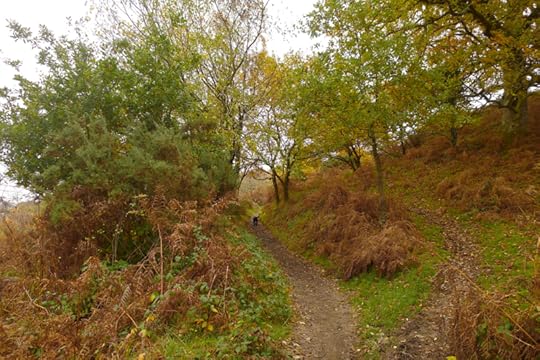 The passage above is from Hope in the Dark: Untold Histories, Wild Possibilities by Rebecca Solnit (Haymarket, 2004). The poem in the picture captions is from The Crooked Inheritance by Marge Piercy (Knopf, 2006). All rights reserved by the authors.
The passage above is from Hope in the Dark: Untold Histories, Wild Possibilities by Rebecca Solnit (Haymarket, 2004). The poem in the picture captions is from The Crooked Inheritance by Marge Piercy (Knopf, 2006). All rights reserved by the authors.
November 29, 2016
From the archives: Beauty, grace, and morning mist

"The beauty of the world...has two edges, one of laughter, one of anguish, cutting the heart asunder.'' - Virginia Woolf (A Room of One's Own)
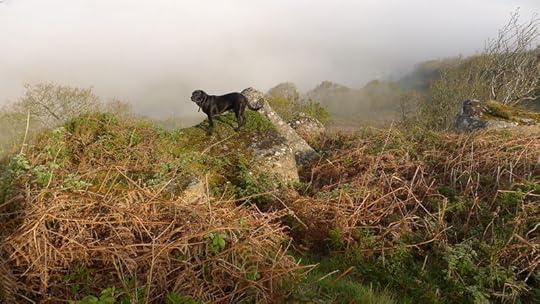
"When I am working on a problem, I never think about beauty. I think only how to solve the problem. But when I have finished, if the solution is not beautiful, I know it is wrong."
- Buckminster Fuller
"You can have the other words ���- chance, luck, coincidence, serendipity. I���ll take grace. I don���t know what it is exactly, but I���ll take it." - Mary Oliver (Winter Hours)

I know nothing, except what everyone knows -
If there when Grace dances, I should dance.
- W.H. Auden ("Whitsunday in Kirchstentten," Collected Poems)
As Tilly and I climb through the morning mist and dawn breaks over Nattadon Hill, I am grateful for beauty. Determined to fight fiercely. Attempting to live gently. Striving, always, for grace.
From the archives: Beauty, grace, and morning mist

"The beauty of the world...has two edges, one of laughter, one of anguish, cutting the heart asunder.'' - Virginia Woolf (A Room of One's Own)

"When I am working on a problem, I never think about beauty. I think only how to solve the problem. But when I have finished, if the solution is not beautiful, I know it is wrong."
- Buckminster Fuller
"You can have the other words ���- chance, luck, coincidence, serendipity. I���ll take grace. I don���t know what it is exactly, but I���ll take it." - Mary Oliver (Winter Hours)

"In the end, only three things matter: how much you loved, how gently you lived, and how gracefully you let go of things not meant for you.'' - Siddhartha Guatama Buddha
Today, as Tilly and I climb through mist, and dawn breaks over Nattadon Hill, I am grateful for beauty. Attempting to live gently. And striving, always, for grace.
November 28, 2016
Tunes for a Monday Morning
On October 3rd, 2013, a boat carrying approximately 500 African migrants was wrecked near Lampedusa (an Italian island near Sicily), causing 366 deaths. Awa Ly, a Sengalese singer born and raised in Paris, wrote the song above in reaction to the tragedy -- and as an appeal for more help for migrants and refugees as the crisis continues.
"The video," says Ly, "tells the story of a man who decides to leave his country for more promising horizons. He is a teenager when we see him packing his luggage, but it is as a grandfather that he climbs onto the boat that will take him away...and to his death. Thus his life is summed up in single day: teenager in the morning, man in the afternoon, grandfather in the evening. The difficulties of everyday life are represented by the beauty and hostility of the desert; the acquisition of the knowledge and experience are represented by a baobab tree. [Sengalese hiphop singer] Faada Freddy and I are the 'storytellers' in the film. Like the spirits, we sing into the ear of the traveler to dissuade him from leaving home."
Below: A sequence of songs performed by Faada Freddy for Le Ring in France. Freddy is an alt-Gospel, Soul and hiphop singer from St. Louis in Senegal, making music entirely out of percussion and voice.
Above: "La fille sans nom" by Breton singer & harpist C��cile Corbel with Faada Freddy, from Corbel's new album Vagabonde. The video was filmed in Dakar, the capital of Senegal, and le Finist��re, Brittany.
Below: American singer/songwriter Alicia Keys performs her song "Hallelujah" on an Italian television program. The song was written for her short film "Let Me In," supporting people around the globe forced to flee conflict and disaster. The song & film were released earlier this year on World Refugee Day, as part of the We Are Here movement.
"I want us all to imagine if we were the refugees," says Keys; "as if we were the ones torn from the arms of our families and loved ones. While some seek to stoke the flames of division and turn us against our fellow neighbors, we���re here to make the case for love and compassion. How would we feel if it were happening to us?���
November 26, 2016
Everyday magic
"I do believe in an everyday sort of magic -- the inexplicable connectedness we sometimes experience with places, people, works of art and the like; the eerie appropriateness of moments of synchronicity; the whispered voice, the hidden presence, when we think we���re alone."
November 24, 2016
On beauty and balance
I'd like to end the week with a final passage from Beauty by John O'Donohue (1956-2008), a philosphical/spiritual/poetic examination of the role of beauty in all of our lives:
"Our times are driven by the inestimable energies of the mechanical mind," O'Dononhue noted, "its achievements derive from its singular focus, linear direction and force. When it dominates, the habit of gentleness dies out. We become blind: nature is rifled, politics eschews vision and becomes the obsessive servant of economics, and religion opts for mathematics of system and forgets its mystical flame. Instead of true leadership which would be the servant of vision and imagination, we have systems of puppetry which are carefully constructed and manipulated from elsewhere. We never know who we are dealing with; hidden agendas operate to deepen our insecurity and persuade us to be hopeless.
"Our present dilemma is telescoped by in this wonderful phrase from Irish writer and visionary politician Michael D. Higgins: 'This acceptance of inevitability in our lives is consistent of course with the suggestion that there is but one vision of the economy, an end of history, the death of ethics, and an appropriate individualism that eschews solidarity and any transcendent public values.
"Yet constant struggle leaves us tired and empty. Our struggle for reform needs to be balanced with a capacity for celebration. When we lose sight of beauty our struggle becomes tired and functional. When we expect and engage the Beautiful, a new fluency is set freee within us and between us. The heart becomes rekindled and our hopes brighten with unexpected courage. It is courage that restores hope to the heart. In our day-to-day lives, we often show courage without realizing it; it is only when we are afraid that courage becomes a question. Courage can tap into the heart of fear, taking that frightened energy and turning it towards initiative, creativity, action and hope. When courage comes alive, imprisoning walls become frontiers of new possibility, difficulty becomes invitation and the heart comes into a new rhythm of trust and sureness."
Go here for O'Donohue's thoughtful discussion of beauty, Celtic mystery and the formative power of landscape on Krista Tippett's radio show. It was one of his last interviews, and well worth a listen...particularly right now. We miss you, John.
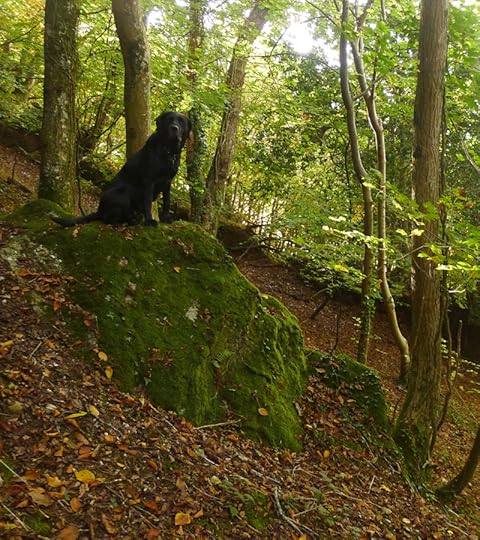 The passage above is from Beauty: The Invisible Embrace (HarperCollins, 2004). The poem is from To Bless the Space Between Us (Doubleday, 2008). All rights reserved by the author's estate.
The passage above is from Beauty: The Invisible Embrace (HarperCollins, 2004). The poem is from To Bless the Space Between Us (Doubleday, 2008). All rights reserved by the author's estate.
Terri Windling's Blog
- Terri Windling's profile
- 708 followers


